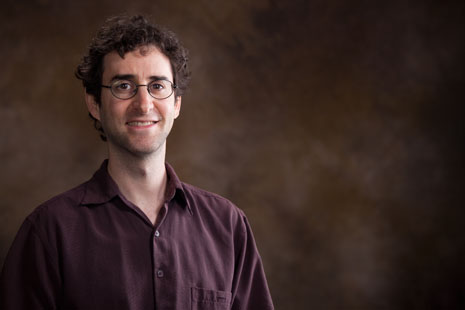FAYETTEVILLE, Ark. – Many considerations could go into evaluating a policy, a painting or a piece of chocolate. University of Arkansas psychologist Scott Eidelman has learned that one factor prevails across the board: Longer is better.
In a series of experiments, Eidelman and colleagues Jennifer Pattershall and Christian S. Crandall found that longevity operates like a commonsense rule of thumb that people apply, often unconsciously, when evaluating the value of something.
“The length of time something has been established seems to serve as a cue to its goodness. The longer a policy, medical practice, painting, tree or consumer good was said to exist, the more favorably it was evaluated,” the researchers wrote in the Journal of Experimental Social Psychology.
The researchers designed five studies to test whether people favored longevity in evaluating things or whether possible alternative explanations operated.
In the first study, participants evaluated two possible university degree requirements, one that was randomly assigned to be the status quo and the other to be a proposed future change. The researchers also varied the time that the existing requirement had been in place. The longer they believed one requirement or the other had been in place, the more positively participants rated it.
Given that Study 1 involved a choice that could lead to change, the researchers noted that loss aversion could have been a factor, because people tend to weigh potential costs more heavily than corresponding gains when considering change. Thus, preference for the status quo might be due to what people could lose by making a change instead of how much they like what has already been established.
Study 2 eliminated the loss aversion explanation by removing choice. Participants were asked to read four descriptions of acupuncture that differed only by the length of time the practice was said to have been used. Once again, the longer acupuncture was said to have existed, the better it was evaluated as a beneficial technique. Yet, a logical explanation exists for that choice: Participants may have assumed that acupuncture had withstood time and competition because it is effective.
The next three studies tested whether the longer-is-better idea continued to operate when logical considerations were removed. In Study 3, participants evaluated a painting. The older they believed it to be, the more they judged it to be pleasing and enjoyable to look at. The aesthetic value of a live oak tree was assessed in Study 4. Again, the older a tree was purported to be, the greater the aesthetic value assigned it.
One alternative explanation remained, the researchers wrote, “People may infer from time in existence that others evaluate the object or practice positively. The aesthetic judgments of participants in Studies 3 and 4 might be considered a ‘reasoned position’ if they inferred that the age of the tree or painting was due to others’ perceptions of quality.”
In Study 5, participants were asked to rate the taste of a piece of chocolate. Each participant sampled the same brand of chocolate, but half were told the brand had been on the market for three years, and the others were told 73 years. Once again, participants gave higher ratings when they thought the chocolate had been on the market longer.
In this case, the researchers went a step further and asked participants their reasons for the rating. Top reasons were taste, texture and sweetness, and smell. No one spontaneously indicated time on the market or the preferences of others as their reason for rating the chocolate.
“The only reason affected by our manipulation was taste; participants thought it was more important to their evaluation the longer the chocolate was on the market,” the researchers wrote. “This pattern of data suggests that reasoning and evaluation are separate and independent processes in this context.”
The non-logical assumption that longer is better has social implications, the researchers note: “These findings speak to the lure of tradition. From products to politicians, companies to cultures, assumptions of goodness from time in existence abound. Because longevity promotes its own favorability, it may confer legitimacy on otherwise undesirable practices, such as torture. It may also add another hurdle to overcome on the road toward social change. Overcoming the status quo is tricky, but overcoming a time-honored tradition is substantially more difficult.”
Eidelman is an assistant professor of psychology in the J. William Fulbright College of Arts and Sciences. Pattershall is a psychology graduate student at the University of Arkansas, and Crandall is with the University of Kansas.
Topics
Contacts
Scott Eidelman, assistant professor, psychology
J. William Fulbright College of Arts and Sciences
479-575-4967, eidelman@uark.edu
Barbara Jaquish, science and research communications officer
University Relations
479-575-2683,
jaquish@uark.edu
